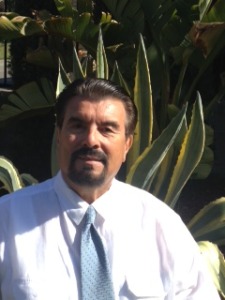Latino Students Are “Overlooked and Poorly Represented” in Oakland Unified
Mar 30, 2015
Posted in Community, Economic Development, Education/Schools/Youth, Equal Rights/Equity, Immigrant Rights, Labor
By Jorge Lerma
Latinos are not getting fair representation.
Latinos make up 41 percent of Oakland’s student population and are still overlooked and poorly represented in the policy and decision-making apparatus of the Oakland Unified School District.(OUSD).
OUSD is a multicultural, multiracial and multilingual urban blend of students of whom most are poor, of color and immigrants. The largest single ethnic group, to the surprise of many, is the Latino and Mexican-American population.
Because the system often lacks the knowledge, sensitivity and awareness of the differences in the Latino community, it routinely categorizes all Spanish surnamed Latinos as either English Language Learners or as immigrants. T
This completely ignores the large, multigenerational and historic presence of not exclusively, but predominantly, Mexican Americans who, like Native Americans, share a common history of not being immigrants but being an indigenous people.

Mexicans have had a presence in the United States, particularly in the American Southwest, since before this area became part of the United States with the Treaty of Guadalupe Hidalgo in 1848. Since this time, the citizenship and ability to exercise their rights as such has been an uphill battle.
Despite this long presence in society, Mexican-American students, families and the community continue to be disenfranchised. They are poorly represented in all areas within the OUSD, including teachers, administrators and classified workforce.
We in the Mexican-American community consider this widespread underrepresentation to be a contributing factor that directly correlates with the violence and physical mistreatment Latinos are receiving at the hands of the school site security officers of the Oakland Unified schools.
The gross underrepresentation, coupled with little to no cultural competence, is only compounded by the lack of sensitivity to the needs of special-needs students. This has been demonstrated in the events that have recently been at the forefront of the media.
The new Oakland Unified School District leadership must break from its biased past and begin to work with the Latino community to ensure a better, safer learning environment for Latinos and other students of color.
Brown lives matter, too. Let’s be a district that embraces and responds to the needs of our new urban blend and the realities of our district. It is time to discard the black-and-white paradigm used to define our discussions on inclusion and equality.
Our world is ever changing and evolving, it is multicolored, multilingual and multicultural. Our urban school districts must also evolve to better serve the needs of this population.
Jorge Lerma is a lifelong educator and member of the Educational Coalition for Hispanics in Oakland (ECHO) and Latino Education Network (LEN).